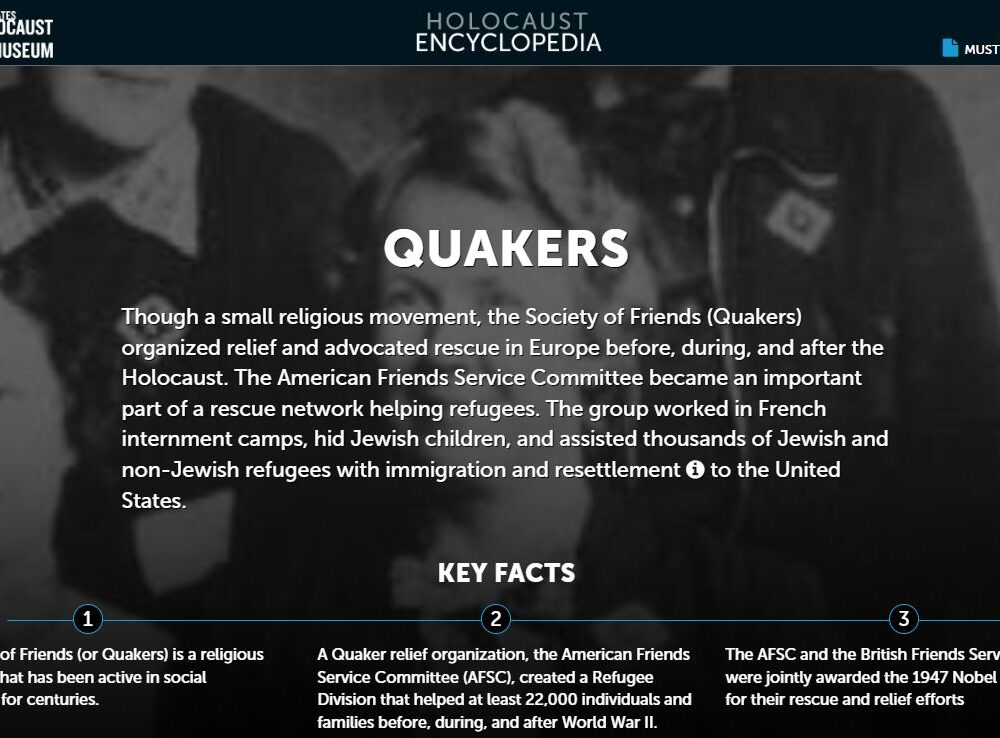
AFSC allocates a third of its budget to the rescue of European Jewry during these years. This work builds trust among Jews that facilitates AFSC work with the UN and Palestinian refugees during and after the Israeli War of Independence and Palestinian Nakba (Catastrophe).
AFSC work in Germany during the Nazi era is itself made possible by AFSC implementation of the American Relief Administration’s program to feed German children after World War I. This work leads to an invitation to remain in Germany after the program ends in 1924 and creates gratitude among Germans, including some who become Nazi officials. AFSC establishes small Quaker centers in Berlin, Frankfurt, and Vienna where students and adults come to learn about Quakers and discuss issues of the day. In 1931, as Nazi influence grows, Jews and others come to the centers seeking help to emigrate. AFSC responds by finding American Quakers willing to support Jewish immigrants in the United States and works with European Friends to establish additional centers offering help in Copenhagen, Amsterdam, Geneva, and Stockholm.
After Kristallnacht in November 1938 AFSC leaders meet Gestapo officials in Berlin to urge measures making it easier for Jews to emigrate. Quaker workers feel the Gestapo meeting makes their work somewhat easier for a time, though the German government rejects their proposal to permit Quakers to arrange the emigration of all Jews seeking to leave the country. AFSC also proposes to the U.S. State Department that AFSC volunteers be stationed in U.S. embassies in Europe to speed visa applications. The State Department initially shows interest in the AFSC proposal but in the end informs AFSC Executive Secretary Clarence Pickett that State “could run its own affairs.”
After U.S. entry into the war makes it impossible for Americans to remain in Germany and Nazi-occupied Europe AFSC opens offices in Geneva, Rome, and Lisbon to continue the work.
